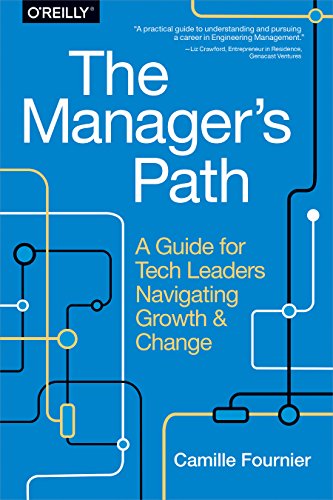Gergely Németh, Engineering Manager at Uber
Published on Jan 7, 2020
5 min read

What’s your background and how did you get into management?
Originally, I’m from Hungary, where I was the co-founder of RisingStack, a small consulting company, focusing on JavaScript and DevOps. Early on, I took on the responsibilities of the CEO – I’ve always enjoyed helping others grow and succeed, so early on I’ve found joy in it. I’ve been leading RisingStack for a bit over three years – during that time we worked for companies small and big, as well as created the company’s SaaS offering too. Currently, I live in San Francisco and working at Uber as the engineering manager responsible for our design system, called Base Web.
What are the biggest challenges you face?
Probably one of the biggest ones is communication, for a few reasons. First of all, internally we support hundreds of product teams, with extremely different requirements. It’s hard to efficiently communicate with all of them – sometimes it feels more like broadcasting, but I’d prefer a dialogue. Then there is the question of over-communicating versus under-communicating – and not just towards the product teams, but team members too. It’s a really fine line and hard to get right – I usually err on the side of over-communicating.
Somewhat related to the first challenge is prioritization – when you serve a huge product org with a small team, you have to make tough decisions on what will and what won’t be done.
Could you share with us a lesson you learned as an engineering leader?
One of the most recent stories I can share is about Base Web’s versioning policy and release cadence – it’s both a technical and a people problem. Initially, when we started building the component library our biggest concern was to build as many of the components of the design spec as quickly as possible, so engineers can start leveraging them. With this mentality, we released 30+ components in a short period of time – but we also ended up with 4 major versions. Initially, bumping majors frequently was not an issue – barely anyone used our library. As more and more teams started adopting Base Web, it was very frustrating for product teams to keep up with the pace of releases, and of course, the unpredictability of the release cycles.
To address the problem, we’ve started releasing all new major versions with codemods, that automatically updated the application’s codebase with the necessary changes. It was not enough, lots of teams were lagging behind.
So currently, we are trying to limit the number of major versions to one a year, every September.
What’s your approach to hiring?
If time permits, I like to do sourcing myself. This gives me the chance to reach out to folks who I know through shared networks. I also prefer to reach out to the communities through channels where their natural communication happens – these days it usually means Slack or Discord. When doing that, I pay special attention not to violate any rules or guidelines of the given community, and use chat rooms dedicated to this purpose. If you are looking for web engineers, Reddit can be helpful too, as the React subreddit has a “who is hiring” section every month.
As you guide the candidates through the hiring process end-to-end, it gives the whole process a more personal touch.
What’s your advice for managers who are just starting out?
First, make sure you pick management for the “right reasons”, and also the “right flavor” of engineering management. Do you find joy in helping others succeed? How much coding will be required/possible in your new position, and are you okay with that? And the list goes on – but in short, prepare for a career which is dominated by people problems, not technical problems.
Once you decided that management is for you, try to work with your current manager so you can start with a small team and your current manager’s guidance. Also, if possible, try to attend engineering leadership meetups, and surround yourself with folks whom you can turn to for advice. They’ll be your most important allies early on in your career.
What’s your workday like and how do you manage your time, emails, etc.?
I am an early riser, so I am usually one of the first ones in the office – this gives me a quiet environment to go through all my emails, and quickly get as many of them out of the way as possible. If they are quick things to do, I usually just do them on the spot and archive them. I thrive to have inbox zero.
For the rest of the emails, I prioritize them against my week or let people know if I won’t have the time to deal with it.
Lately, I’ve been using Clockwise. It’s a great tool for rescheduling meetings so you have the most focus time to get things done.
What’s a personal habit that contributes to your success?
I believe that following up makes for a better manager – sometimes people just have so many things on their plate that they didn’t get to your ask or email not because they don’t want to, but it slipped between the cracks. I am methodical in following up with folks, sometimes in an automated way, if I have to reach a broader audience.
Share an internet resource or tool that you can’t live without.
I’d say Audible. Whenever I take a walk or go to the gym, I listen to audiobooks, either for education or for fun.
If you could recommend one book to managers, what would it be and why?
If I had to pick one, I’d probably go for The Manager’s Path by Camille Fournier. I believe that no matter where you currently are in your career, there is something new in there for everyone. Even if someone has already read it, it’s a good refresher on the challenges folks face in different phases of their careers.
What’s your approach to mentoring and coaching members of your team?
I believe that everyone owns their career. They know best how they’d like to grow, and in what areas. I am there to provide feedback and an outside perspective. With that said, I always do my best to provide growth and learning opportunities, but it’s up to the team members to seize them.
To make sure we are making progress one everyone’s goals, I like to keep track of them in the 1:1 notes I have with team members and revisit them periodically.
Where can we go to learn more about you? (e.g., LinkedIn, Twitter, Blog, GitHub, etc.)
- Twitter: https://twitter.com/nthgergo
- Blog: https://nemethgergely.com
- GitHub: https://github.com/gergelyke
- LinkedIn: https://www.linkedin.com/in/nthgergo






